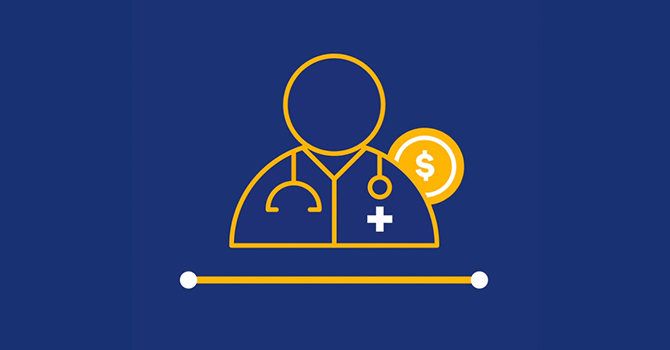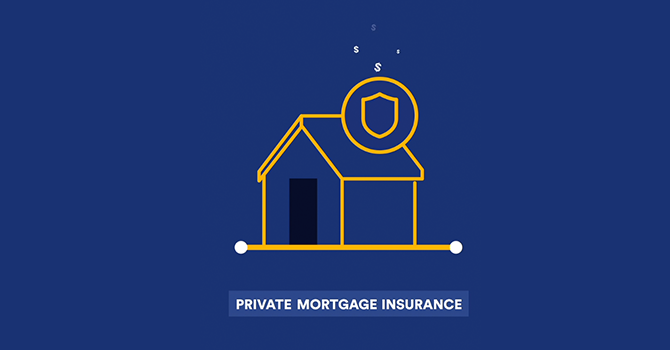Deciding to buy a home may be one of the biggest financial decisions you’ll ever make. For most people considering homeownership, the biggest question is, “Can I afford it?” Medical residents, however, have a host of other factors to weigh.
Here are some important things to consider before you take the plunge and make a bid on a home.
Is it the right time for me to buy a home?
While medical residency brings a much-needed sense of career stability, it can often mean personal instability, especially when planning for the future.
After your residency, you will either begin a fellowship or work as an attending. Oftentimes these career opportunities will take you away from the teaching hospital where you currently reside.
When considering the purchase of a home, you should take time to ask yourself whether you want to put down roots where you are right now. Also ask yourself: Does it make sense to purchase a home now if I’m considering listing it for sale within a few years? Will I have paid the loan down enough to draw a profit from the sale? If I decide to keep my home as an investment property, do I have the necessary resources to act as a landlord?
By answering these questions, you will get a clearer picture of whether homeownership is the right move for you at this point in your career.
How much house can you afford?
When deciding if you can afford to buy a home, the first thing you should do is calculate if you can maintain your current lifestyle with the added responsibility of a mortgage.
By buying a home, you’ll not only have a monthly mortgage to pay, you’ll also have the added costs of homeowners’ insurance, property taxes, utilities, maintenance costs, and in some cases homeowner association fees. Add that to your current debts, including student loans, car loans, and credit cards, and your financial obligations start to add up fast.
Typically, your mortgage lender will determine how much you can afford, and how much they are willing to lend based on your total income, your monthly debts, and debt-to-income ratio (“DTI”). But you first have to decide on your personal comfort level and what fits in your budget.
Understanding DTI
Let’s take a closer look at DTI and why it matters.
DTI, or debt-to-income ratio, is your total monthly debt payments divided by your pre-tax monthly income. Mortgage lenders limit the amount you can borrow by DTI guidelines for their mortgage programs. The guidelines can vary but it’s not uncommon for lenders to offer programs that go up to a 43% DTI[1] Some physician mortgage programs, may allow doctors to go slightly higher on their DTI.
For example, if your resident salary is $60,000 ($5,000 per month) and you have monthly student loan and car payments of $100 and $300, your monthly debt payment is $400 and your debt to income ratio is 12.5%.
In this scenario, your lender may approve you for a loan that brings your total DTI to 45% which would mean a monthly mortgage payment of $1,850 ($5,000 X 45% = $2,250 – $400 = $1,850). This payment will include principal and interest as well as property taxes, homeowners’ insurance, and mortgage insurance, if applicable.
It’s always a good idea to keep your total housing expenses on the lower end of the amount for which you are approved.
What are your monthly expenses, and are they all included in your debt-to-income ratio?
During the mortgage application process, your lender will typically review monthly obligations like your student loan payments, auto finance loans, and credit cards, and other debt and legal obligations, such as child support.
But what about your other expenses like health and auto insurance, utilities, and food? While mortgage lenders typically do not calculate these expenses when they evaluate your creditworthiness and debt ratios, you should consider all expenses when deciding how much you feel comfortable paying.
It’s also important to consider resident-specific costs such as licensing exams, application fees, CBT exam fees, oral exam fees, and certification management fees. And don’t forget your continuing education costs like medical conference registration, travel, and lodging.
How much money will I need for a down payment?
For most mortgage loans, you will need a down payment of at least 3-5%[1]of the sales price of the home, although less than 20% typically requires mortgage insurance. That being said, down payments can differ by program and location.
Some lenders offer mortgage programs to physicians and dentists that allow for better terms like requiring no mortgage insurance for down payments of less than 20%. Read more about these physician mortgage options here. Be sure to speak to a mortgage professional to understand the requirements for your specific situation.
What’s my next step?
After you have considered whether now is the right time to purchase a home, weighed the costs of homeownership against your income, and calculated all your expenses, you should have a pretty clear idea of whether you would like to pursue the dream of homeownership.
In providing this information, neither Laurel Road nor KeyBank nor its affiliates are acting as your agent or is offering any tax, financial, accounting, or legal advice.
Any third-party linked content is provided for informational purposes and should not be viewed as an endorsement by Laurel Road or KeyBank of any third-party product or service mentioned. Laurel Road’s Online Privacy Statement does not apply to third-party linked websites and you should consult the privacy disclosures of each site you visit for further information.




